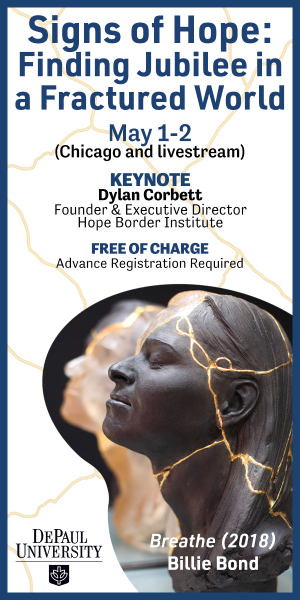Today marked the 75th anniversary of the Fair Labor Standards Act, the law that first established a federal minimum wage. And a Senate committee that gathered for a hearing in honor of the occasion got a great lesson in Catholic teaching on labor and economics, courtesy of Bishop Stephen Blaire.
Blaire, who heads the U.S. bishops’ Committee on Domestic Justice and Human Development, made a strong case for protecting the rights and dignity of workers, calling on the teachings of several popes including Leo XIII, John Paul II, Benedict XVI, and of course Pope Francis. In his testimony, Blaire argued that a just wage–one that realistically allows a worker to support their family based on the current cost of living–is critical for workers and would be a positive first step in fixing the economy. “Work should be a ladder out of poverty for families, it should not trap them in poverty,” said Blaire. “Yet this is where we find ourselves–a growing number of families are working but do not make enough to live in dignity. It is a scandal that the richest country world has allowed over 23 million children in working poor families to become the norm.”
Though he was the only speaker offering a Catholic perspective at the hearing today, Blair is far from the only person arguing for an adjustment to the federal minimum wage, which currently sits at $7.25 per hour. President Obama had called for an increase to $9.00 an hour earlier this year and today Vice President Joe Biden pointed out that the 1968 minimum wage, adjusted for inflation to 2012 dollars, would be $10.52, according to a report from the Center for Economic and Policy Research (CEPR).
The Congressional Budget Office has also reported that the wealthiest Americans have seen a 275 percent increase in income over the past three decades, while in the same time frame the bottom 20 percent of households saw just an 18 percent income increase, despite increases in productivity. In fact, CEPR finds that had minimum wage increased along with average productivity since 1968, it would have hit $21.72/hour in 2012.
How much would increasing minimum wage help today? That’s a question that economists are divided on, as some say increasing minimum wage leads to higher unemployment. We asked Catholic economist Charles Clark in an interview published in our July issue, and here’s what he had to say:
“Economists love to debate the minimum wage because their theory says it only causes unemployment. It drives them nuts that the evidence shows that it doesn’t really cause unemployment… The research clearly shows that once you raise the minimum wage, the whole bottom wage structure rises with it. The last study that I saw found the bottom 40 to 50 percent of wages start to creep up once you raise the minimum wage. That’s a way of creating rules to push people up.”
I’m no economist, and I don’t claim to be an expert on theories of minimum wage, so I’ll leave that debate to the economic experts. But I do know that Bishop Blair is correct in saying that many families work hard for a living and yet still struggle to put food on the table and provide for their children. And indeed, that is a scandal that a nation as wealthy as the United States should not be willing to accept.








